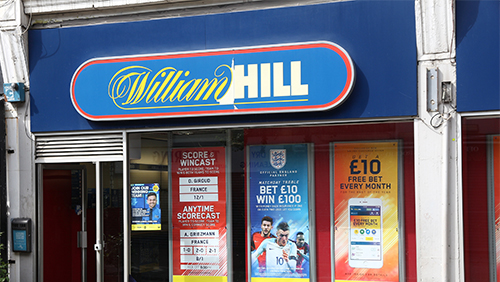There are plenty of reasons to buy William Hill, the newest one being newly-struck deal with CBS on U.S. sporstbook. It adds on to the pile of reasons, but not because it will lead to quick sportsbook gains in the United States specifically. If that is your expectations, you’re buying for the wrong reason. Buying for the wrong reasons isn’t such a bad thing, unless it leads to the flipside of buying for the wrong reason, which of course is selling for the wrong reason. Buyers of this deal should not expect William Hill’s U.S. numbers to jump significantly any time soon. Consider it just another tool that the company now has in its versatile belt.
Remember the ghost of the once-promising cannabis industry upon legalization, which is now in the doldrums indefinitely because lawmakers just can’t control themselves in their tax greediness. Taxes and regulations have made it virtually impossible for the legal cannabis industry to compete with black market operators. For sportsbook and gaming the situation is different obviously, since black market bookies can’t thrive like black market cannabis operators. But taxes and regulations can certainly kill a nascent sportsbook industry by making it unprofitable to operate.
Hill has gotten clobbered in the United Kingdom for nearly 7 years now on the back of a spectacular and retrospectively overbought rally out of the financial crisis, followed by relentless regulatory attacks from the U.K. political class. If a small-government, libertarian-leaning Boris Johnson/Dominic Cummings administration can’t stop the regulatory tide against the U.K. gaming industry, then a best case scenario reelected Trump Administration won’t stop it in the U.S., either. Certainly, a Sanders or Buttigieg Administration will not be nice to a nascent budding betting sector in the “Land of the Free”. Washington is starving for revenue and scapegoats, as are all state governments of the biggest betting markets that are going to be established across the Atlantic over time.
That does not mean that U.S. deals are irrelevant. They are important, essential, and bullish, but more for slow-burn reasons that will only pay off over the long term. Brand recognition and customer acquisition now will go a long way for when the U.S. market is truly ready to grow. That may not be for another 5-10 years or even longer, depending on the timing of the next bust, which will be blamed on irresponsible gambling firms invading U.S. shores and corrupting American culture, among other villains such as “capitalism” and “greed” generally.
